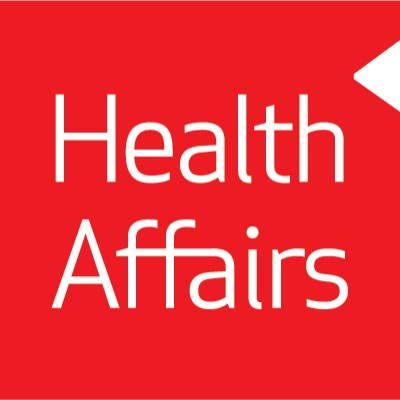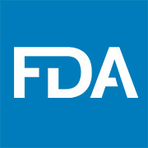Testing Troubles: CDC's Bird Flu Missteps Leading to Concerns of a Repeat of COVID Testing Failures
June 26, 2024, 4:10 am

Location: United States, California, San Francisco
Employees: 201-500
Founded date: 1991

Location: United States, District of Columbia, Washington
Employees: 51-200
Founded date: 2009
The United States is currently grappling with a testing crisis in the midst of the bird flu outbreak, as the Centers for Disease Control and Prevention (CDC) has 1 million tests ready for deployment. However, experts are expressing deep concerns about a potential repeat of the testing failures that plagued the country during the COVID-19 pandemic.
Clinical laboratories across the nation are urging to be included in the testing process, emphasizing their crucial role in the public health system. Despite the CDC's recognition of the need for clinical labs in a memo issued on June 10, there are still significant barriers hindering their involvement in testing for the H5 strain of the bird flu virus, which is currently circulating among dairy cattle.
Renowned researchers, including former CDC director Tom Frieden and Dr. Anthony Fauci, who spearheaded the nation's response to COVID-19, point to testing failures as a key reason for the United States' poor performance during the pandemic. They argue that had COVID tests been more widely available in early 2020, many cases could have been detected earlier, potentially preventing outbreaks that led to business shutdowns and loss of lives.
In a recent article, Jennifer Nuzzo and a group of colleagues highlighted that the issue during the COVID-19 pandemic was not the lack of testing capability but the failure to deploy that capability swiftly. The United States reported excess mortality rates eight times higher than other countries with advanced laboratory facilities and technological advantages.
The comparison with South Korea's immediate rollout of testing through private sector laboratories further underscores the importance of swift and widespread testing in managing health emergencies. The delay in implementing a comprehensive testing strategy for the bird flu outbreak has put the U.S. weeks behind the playbook developed in response to the lessons learned from the COVID-19 crisis.
Ample testing is crucial for two primary reasons. Firstly, early detection of infections is essential for prompt treatment, especially considering that approximately half of the 900 individuals worldwide known to have contracted the bird flu in the past two decades have succumbed to the illness. Secondly, the availability of timely testing is vital to prevent potential spread among humans, as the virus continues to evolve.
Efforts to boost bird flu testing among farmworkers have faced challenges, with outreach efforts falling short due to language barriers and concerns about job security. The reliance on public health labs for testing poses additional hurdles, as busy clinicians may struggle to navigate the complex testing scheme, potentially leading to missed cases.
The involvement of clinical laboratories is not only crucial for ramping up testing capacity but also for ensuring a swift response in the event of human-to-human transmission of the virus. The CDC's offer of royalty-free licenses for components of its bird flu tests to accredited labs was a step in the right direction, but delays and lack of clarity have impeded progress.
The current situation with testing for the bird flu outbreak mirrors the early months of the COVID-19 pandemic, where caution often took precedence over speed in regulatory processes. While test accuracy is paramount, excessive vetting can hinder the response in a rapidly evolving outbreak scenario.
Clinical laboratories are cautiously developing their own tests, but a recent FDA rule that increases oversight of lab-developed tests has added to the complexity and uncertainty surrounding testing efforts. The lack of clarity on reimbursement for bird flu tests further complicates the situation, as labs grapple with the uncertainty of demand and funding.
As the U.S. navigates the challenges of testing for the bird flu outbreak, the vanishingly low numbers of individuals tested and the absence of testing in cattle may draw criticism from the global community. The need for a coordinated and efficient testing strategy is paramount to prevent a potential public health crisis and maintain America's standing in the world.
In conclusion, the U.S. must act swiftly to address the testing challenges posed by the bird flu outbreak, learn from past mistakes, and ensure that clinical laboratories are fully integrated into the testing process. Failure to do so could have far-reaching consequences for public health and global health security.
Clinical laboratories across the nation are urging to be included in the testing process, emphasizing their crucial role in the public health system. Despite the CDC's recognition of the need for clinical labs in a memo issued on June 10, there are still significant barriers hindering their involvement in testing for the H5 strain of the bird flu virus, which is currently circulating among dairy cattle.
Renowned researchers, including former CDC director Tom Frieden and Dr. Anthony Fauci, who spearheaded the nation's response to COVID-19, point to testing failures as a key reason for the United States' poor performance during the pandemic. They argue that had COVID tests been more widely available in early 2020, many cases could have been detected earlier, potentially preventing outbreaks that led to business shutdowns and loss of lives.
In a recent article, Jennifer Nuzzo and a group of colleagues highlighted that the issue during the COVID-19 pandemic was not the lack of testing capability but the failure to deploy that capability swiftly. The United States reported excess mortality rates eight times higher than other countries with advanced laboratory facilities and technological advantages.
The comparison with South Korea's immediate rollout of testing through private sector laboratories further underscores the importance of swift and widespread testing in managing health emergencies. The delay in implementing a comprehensive testing strategy for the bird flu outbreak has put the U.S. weeks behind the playbook developed in response to the lessons learned from the COVID-19 crisis.
Ample testing is crucial for two primary reasons. Firstly, early detection of infections is essential for prompt treatment, especially considering that approximately half of the 900 individuals worldwide known to have contracted the bird flu in the past two decades have succumbed to the illness. Secondly, the availability of timely testing is vital to prevent potential spread among humans, as the virus continues to evolve.
Efforts to boost bird flu testing among farmworkers have faced challenges, with outreach efforts falling short due to language barriers and concerns about job security. The reliance on public health labs for testing poses additional hurdles, as busy clinicians may struggle to navigate the complex testing scheme, potentially leading to missed cases.
The involvement of clinical laboratories is not only crucial for ramping up testing capacity but also for ensuring a swift response in the event of human-to-human transmission of the virus. The CDC's offer of royalty-free licenses for components of its bird flu tests to accredited labs was a step in the right direction, but delays and lack of clarity have impeded progress.
The current situation with testing for the bird flu outbreak mirrors the early months of the COVID-19 pandemic, where caution often took precedence over speed in regulatory processes. While test accuracy is paramount, excessive vetting can hinder the response in a rapidly evolving outbreak scenario.
Clinical laboratories are cautiously developing their own tests, but a recent FDA rule that increases oversight of lab-developed tests has added to the complexity and uncertainty surrounding testing efforts. The lack of clarity on reimbursement for bird flu tests further complicates the situation, as labs grapple with the uncertainty of demand and funding.
As the U.S. navigates the challenges of testing for the bird flu outbreak, the vanishingly low numbers of individuals tested and the absence of testing in cattle may draw criticism from the global community. The need for a coordinated and efficient testing strategy is paramount to prevent a potential public health crisis and maintain America's standing in the world.
In conclusion, the U.S. must act swiftly to address the testing challenges posed by the bird flu outbreak, learn from past mistakes, and ensure that clinical laboratories are fully integrated into the testing process. Failure to do so could have far-reaching consequences for public health and global health security.

